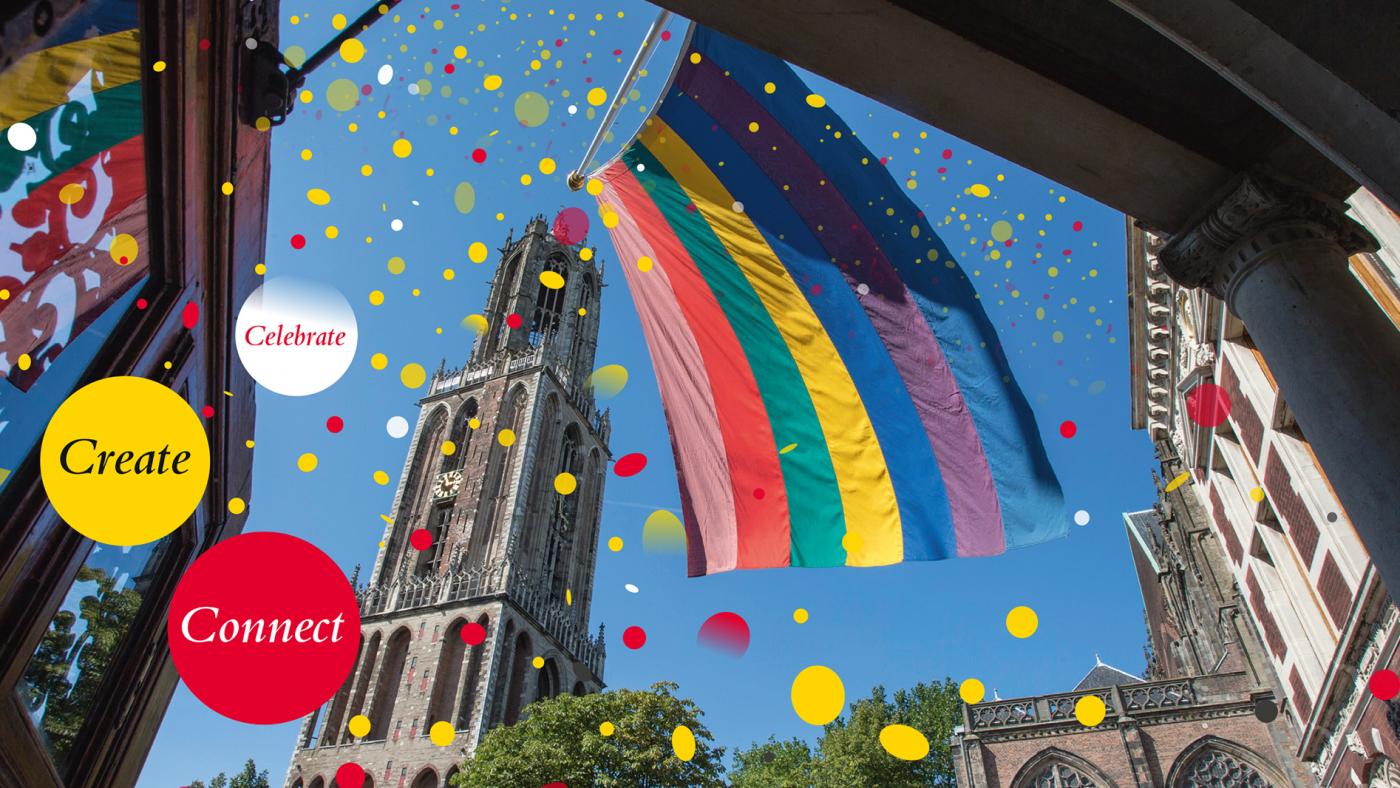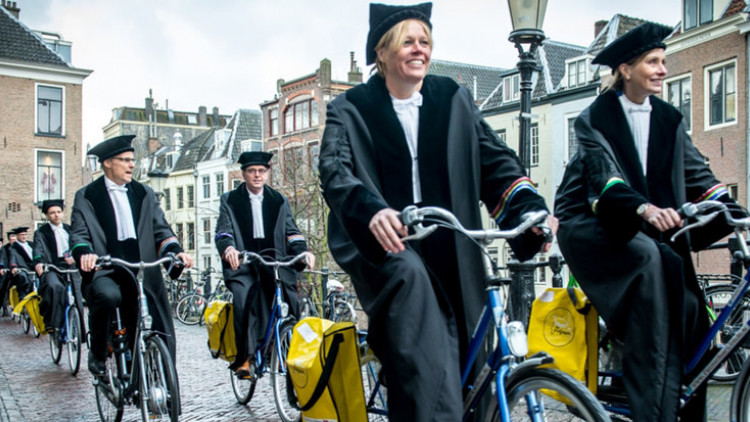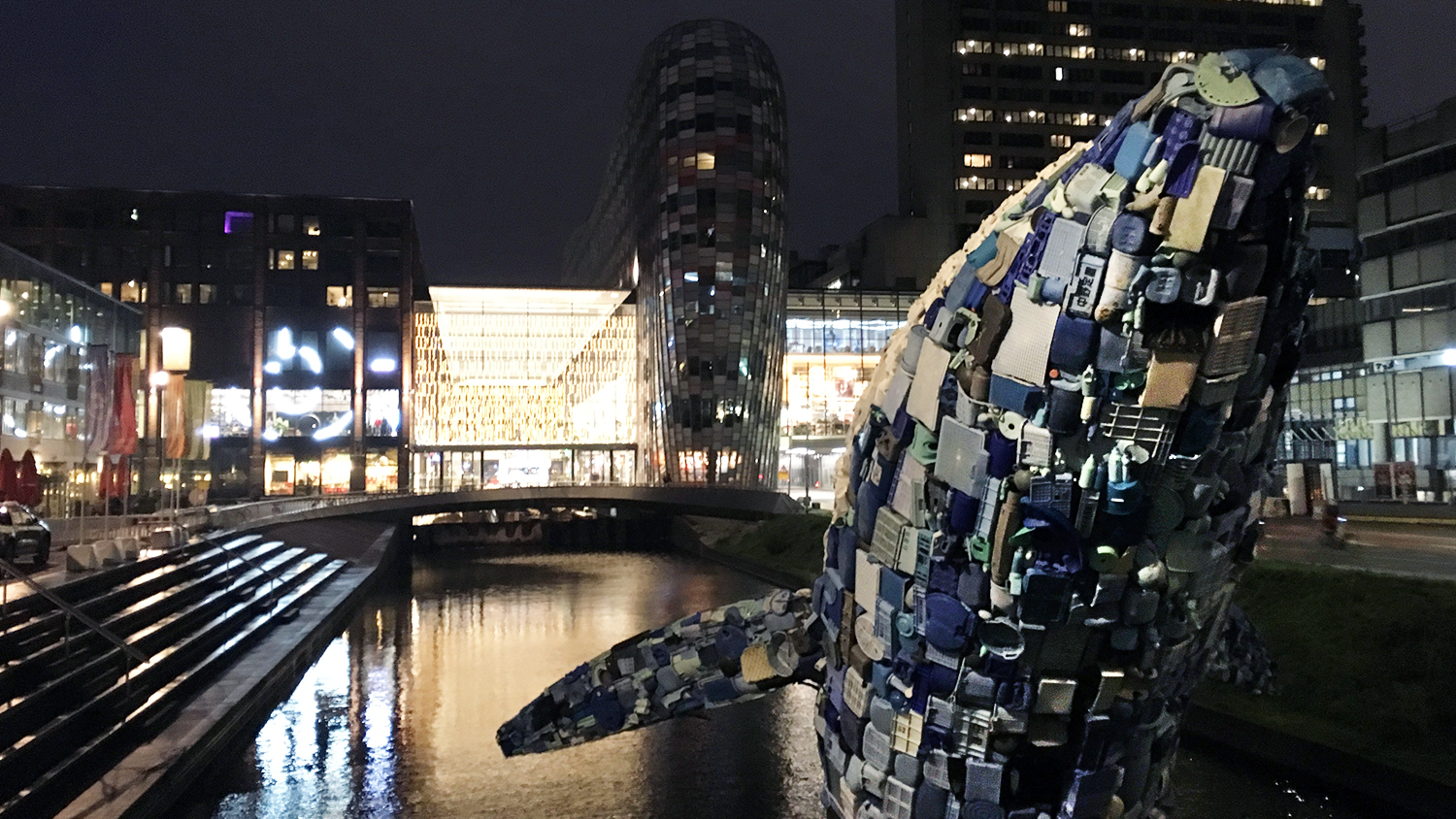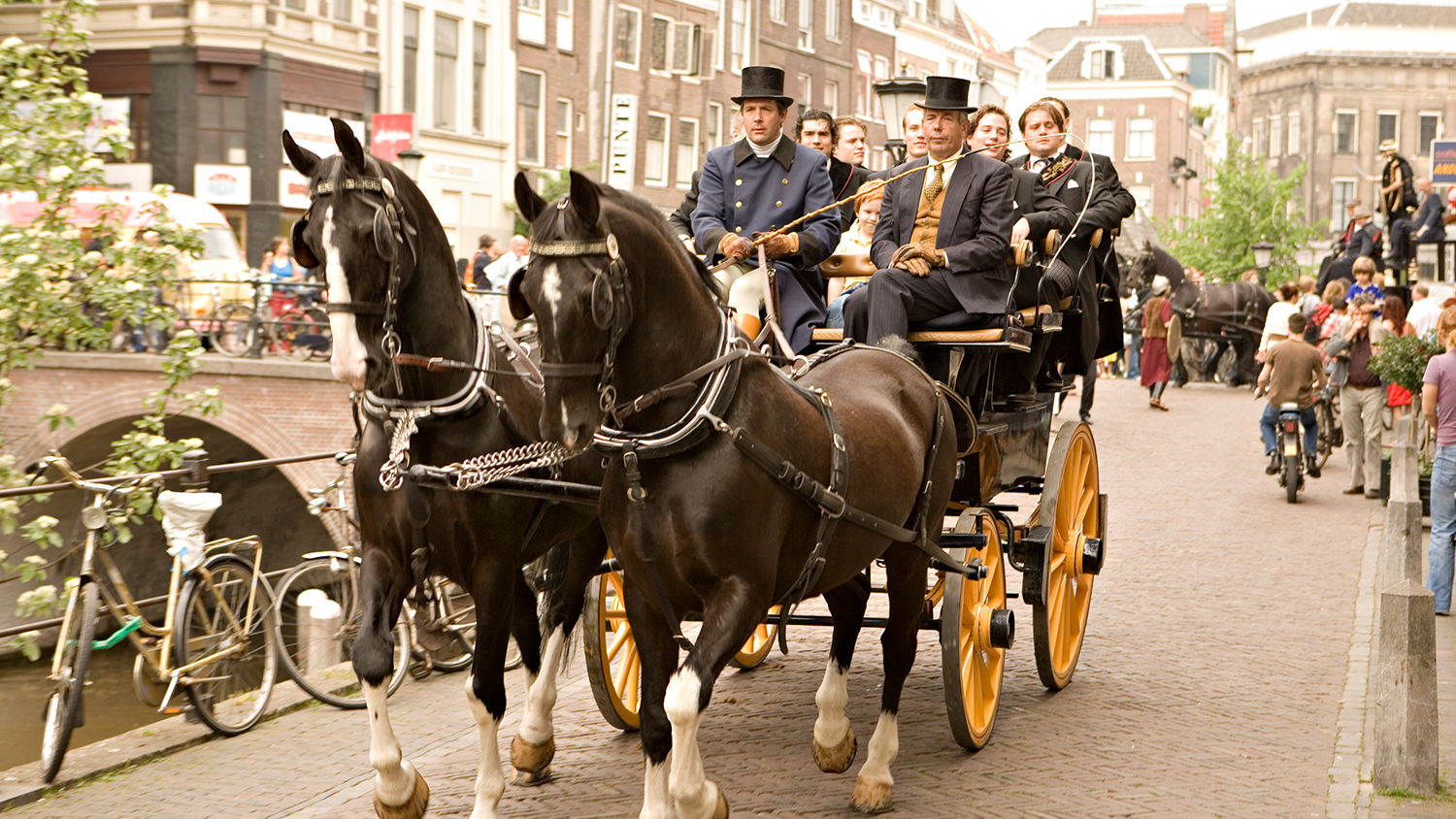UU and UMCU celebrate lustrum by working with the city to create Utrecht Science Agenda

Developing the so-called Utrecht Science Agenda is only one of the activities Utrecht University will be organising in 2021 ahead of its lustrum. Other activities include an artwork which will serve as meeting place, and a series of dialogues between scientists, students, and residents. They will all be organised taking the corona regulations in mind.
UU and the University Medical Centre Utrecht will be joining forces for the lustrum, which will have the institutions' connection with the city at heart. The UU's lustrum committee was asked to come up with a programme for the 77th lustrum over a year ago, which led to the theme Creating Tomorrow Together. The Dies (anniversary in Latin), to be celebrated in March, will be the starting point for a plethora of activities.
“We were hesitant to take action for a long time, says lustrum chairman Wim Kremer, professor at the Faculty of Veterinary Medicine. “There's no way to know what's going to be possible throughout this year, so we decided to make all our activities corona-proof. If it tuns out that more things are possible, then we’ve got room to expand them.”
New chairman
Kremer took the role of chairman in the end of 2020. He succeeded professor Chantal Kemner, who resigned because of the complexity caused by corona. Given the responsibilities required by her research projects, she was unable to give the lustrum the attention it needed.
The Utrecht Science Agenda is the most important element of the celebrations, according to Kremer: “We want to work with the city to find themes that the university can work on. The idea is to really make what the university means for the city tangible. Both students and researchers can play a role in this.”
Berent Prakken, Vice-dean of Education at the Faculty of Medicine, also a member of the lustrum committee, adds: “That way, the university and the hospital can also offer something to the city.”
Remarkable dialogues
Perhaps readers will be familiar with the National Science Agenda, an initiative that invited Dutch citizens to send in questions to be investigated by scientists. The Dutch government has allocated considerable funds for this project, but that won’t be the case for the Utrecht Science Agenda.
“For students and scientists, it can be very inspiring to work for the city in this way. The input from the city is crucial for the UU and the UMCU, which is why we’re going to collect questions by initiating dialogues with several groups of residents and organisations in the coming year. We’re hoping that this will engage people who otherwise wouldn't have much to do with the university", says Prakken.
The dialogues will focus on relevant themes such as climate change, diversity, poverty, education, and the city of the future. "Everyone’s welcome to attend these meetings online. The conclusions will be published in a dedicated podcast. That means those conversations will most likely contribute to the Utrecht Science Agenda, which can lead to specific research projects by enthusiastic researchers, who will give the city their feedback at a later stage. That way, we’re also consciously connecting with the large-scale celebrations of Utrecht’s 900th birthday in 2022.”
 Meet the Professor, one of the activites organised in 2016. Photo: DUB's archive.
Meet the Professor, one of the activites organised in 2016. Photo: DUB's archive.
Societal role
There are already a number of initiatives in which the municipality and the educational institutions based in Utrecht collaborate closely, such as Utrecht Challenge Alliance, in which university students, the hospital, the university of applied sciences, and the ROC school join forces to find solutions to the city's issues. There’s also the co-challenge, in which UU-Master’s students and PhD's team up with the students of Utrecht's University of Applied Sciences to conduct research assignments. Finally, one can mention the Utrecht Healthy Urban Living Lab, which conducts practical research.
The idea is to include several of these initiatives in the Utrecht Science Agenda -- which, according to Kremer, will strenghten the projects. “It clearly shows how important this societal role is for the university”, he says. Kremer hopes that the Utrecht Science Agenda will mark the beginning of a new tradition, like Meet the Professor did five years ago. The activity had professors cycle to primary schools in Utrecht – whilst wearing their togas – to talk about their research.
Skyscraper part two
An artistic production is also in the works. Ten years ago, the university caused a sensation with a light show which had lasers shooting from the Van Unnik building to the city centre. Five years ago, an art project with Daan Roosegaarden had to be cancelled at the last minute, due to its high costs, and trees were decorated as an alternative.
Once again, the lustrum committee has its eyes on a spectacular art piece, about which it can’t say much yet -- however, they can already reveal that it is inspired by The Skyscraper, the plastic whale that stood in the canal near Vredenburg square a few years ago.
Rebecca van Musscher, Lustrum Director and Programme manager of Societal Impact at the Faculty of Law, was the one responsible for bringing the whale to Utrecht. “The Skyscraper was a great success. Thanks to that piece of art, people started talking about sustainability, especially plastic waste, and countless activities were organised around this theme. The artwork we’ve got our eye on also has a theme that goes along with it. We want it to be a meeting point in the city, just like The Skycraper, which was placed in a central location.”  The Skyscraper. Photo: DUB
The Skyscraper. Photo: DUB
No large music festivals
This year's lustrum initiatives, which will also include activities for students and staff, will, therefore, focus on content. Due to the coronavirus pandemic, larger activities such as the music festival UUnited, in which renowned musicians to play with Utrecht-based student bands at the Tivoli concert hall, aren't possible. It is still unclear whether some of the activities under the Student & City theme, which includes a walking trail with QR codes around the city, can take place.
Apart from the university and the UMCU, the fraternity Utrechtsch Studenten Corps (USC) is also celebrating a lustrum. The USC claims the UU’s foundation date as its own starting date because, back in the day, all students became members of the USC automatically.
The president of the Masquerade Committee, Michiel van Nederpelt, is also a member of the UU lustrum committee, where he's tasked with investigating how best to reach students. But most of the activities will be organised by the association itself. They, too, have to take into account the corona restrictions. “We’ve scheduled a ‘go or no go’ moment as part of our celebrations. If a certain activity can’t take place because of corona, then we’ll have to come up with an alternative. We always throw a big party to reveal the lustrum's theme, for example, but that was not possible because of the second lockdown. So, we had to do it online, which was fun nevertheless: over 19,000 people, from all over the country, participated.”
The USC lustrum is traditionally kicked off with a reunion in the first weekend of July, including several lectures and cultural activities. After that, there will be a week filled with parties (if possible by then, of course) and the alumni theatre play Honorairen-travesti, in which all roles are played by men. “The play is accessible to anyone, although tickets are always sold out rather quickly. It’s hugely popular”, explains Michiel.
Casanova
The USC will also be organising activities for the city. “Because of corona, they won’t be as big as in other years. But we’ve got several small-scale events, such as making music in nursing homes. We've recently worked with primary schools on a Christmas card project for lonely elderly people. This year, we’ll also do an exhibition in the Utrecht Archives about 160 years of student life in the city.”
Another important part of USC's lustrum is its The Masquerade, a large parade through the city, with decorated vehicles. The fraternity has joined forces with the university for this activity, which is why it is also themed Creating Tomorrow Together. Here, too, corona rules shall apply: the Masquerade's structure will depend on what’s possible by then.

Photo: DUB's archive.
The USC also has its own procession, which will be themed Casanova. “The theme should always reflect the time we live in. People might think: how can you have Casanova as a theme in times of #MeToo? How can you celebrate a man known as a womaniser? But it’s not like that. Casanova was an intellectual and a bon vivant. Above all else, he yearned for freedom: he had an unrelenting zest for life. He woke up, appreicated every breath he took, enjoyed every day, went to bed exhausted, used every opportunity he found, caused a number of stirs, made friends and enemies, loved, learned, and taught. That desire for freedom is something we students have as well nowadays, especially during a pandemic. That’s why it’s so fitting.”